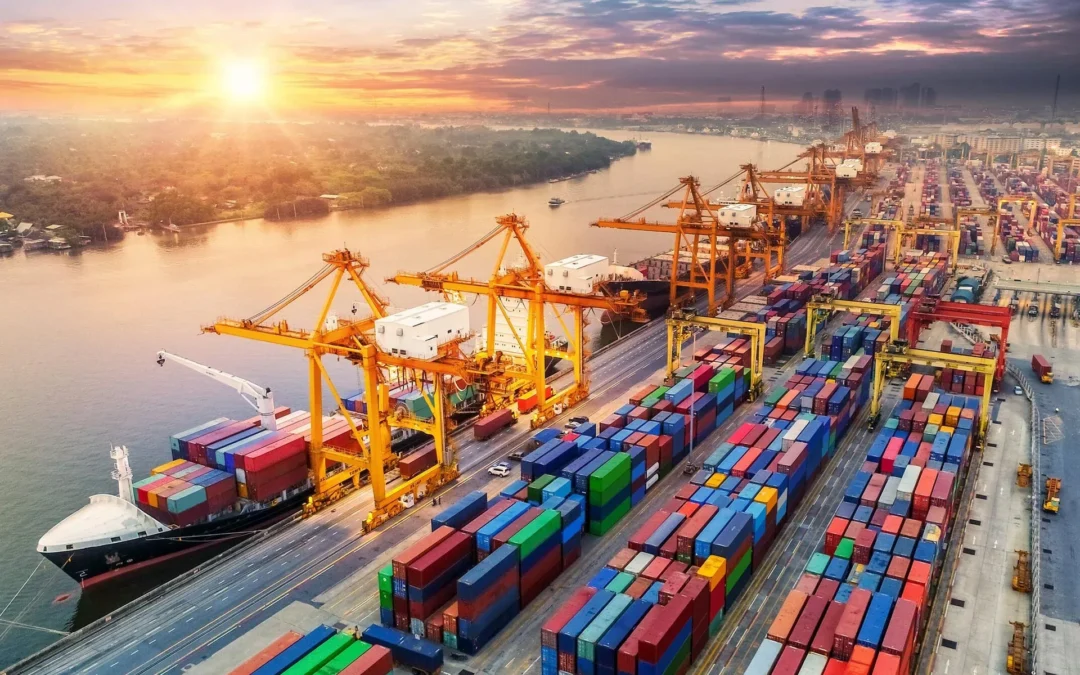As a business owner, you’re always looking for ways to minimize risk and maximize efficiency. Trade compliance is crucial in achieving both. Ensuring your shipments meet all legal requirements not only keeps your business on the right side of the law but also prevents costly delays and fines. So, why is it so important? And how can it impact your bottom line?
In this article, we’ll take a closer look at the role of import-export laws, why they should be a top priority for your business, and how they can streamline your global operations. Let’s dive in.
What is Trade Compliance?
Why Trade Compliance is important?
Export and import compliance is crucial for fair and consistent global trade. It ensures that goods meet the same quality, ethical, and economic standards, protecting both suppliers and customers. Understanding trade regulations is vital for businesses expanding internationally and staying compliant with all laws and regulations. Here’s why it’s important:
- Fairness and Consistency: it ensures that every business follows the same set of rules when trading so no one has an unfair advantage.
- Smooth Operations: it helps ensure that goods shipped between countries follow the right processes, avoiding delays or mistakes.
- Reduces Risks: When businesses follow trade rules, they avoid fines, penalties, and shipping delays and also steer clear of legal issues.
- Product and Quality Standards: Every country has rules to ensure products are safe and meet certain standards. it helps companies make sure their products are up to those standards.
- Protects Suppliers and Consumers: By sticking to trade rules, businesses ensure that both their suppliers (the companies they buy from) and their customers are treated fairly and safely.
What Does Trade Compliance Involve?
Import-export compliance covers many aspects of trading, from legal to operational factors. To simplify, we can break it down into eight key areas, each playing a crucial role in successful global trade. They are:
- Tariff Classification: Tariff classification ensures that goods are assigned the correct codes for customs duties. This step is critical for accurate tax calculation and smooth border processing.
- Origin Preference: The country of origin determines eligibility for special tariffs or exemptions under trade agreements. Knowing your product’s origin can significantly reduce costs and improve your trade benefits.
- Incoterms: Incoterms define the roles and responsibilities of buyers and sellers during the shipping process. Understanding these terms helps clarify who handles what in the logistics chain.
- Import Licensing: Import licensing is required for specific goods that need government approval before entering a country. Ensuring you have the proper licenses can prevent costly delays at customs.
- Export Controls: Export controls regulate the shipment of certain goods due to national security, foreign policy, or trade agreements. Compliance with these controls is essential to avoid legal violations.
- Customs Management: Effective customs management involves preparing the necessary documentation and complying with regulations when goods cross borders. It helps prevent delays and ensures legal compliance.
- Screening: Screening involves checking products for compliance with regulatory standards and ensuring that goods are not restricted or unsafe. This step protects your business from potential fines or penalties.
- Fair Valuation of Products: Accurately valuing goods is essential for customs procedures. It ensures that products are correctly priced for duties and taxes, preventing misvaluation issues that could lead to fines or delays.
Why Choose IOR Africa For Tech and IT Equipment Compliance?
At IOR Africa, we understand the headaches tech and IT companies face when dealing with import compliance and regulations. That’s why we comply with all the compliance requirements as a trusted Importer of Record. Our goal is to help you avoid the hassle of shipments getting stuck in customs, ensuring a smooth, worry-free import and export process every time. Fill out the form and let’s talk
Deepen your knowledge by reading related articles:
Frequently Asked Questions
What is international trade compliance?
International trade compliance refers to the adherence to regulations and laws governing the import and export of goods across national borders. This includes ensuring that businesses comply with the specific requirements set by both the exporting and importing countries. The goal is to facilitate smooth and lawful cross-border transactions while avoiding legal issues, penalties, and disruptions. Businesses engaging in international trade must navigate diverse regulations, customs procedures, and trade practices to ensure ethical and responsible operations.
Global trade compliance definition
Global trade compliance is a comprehensive approach to following regulations and laws that govern the movement of goods across international borders. It involves strategically and systematically ensuring that businesses comply with a myriad of trade requirements on a global scale. This includes understanding and adhering to diverse regulations, customs procedures, and trade practices worldwide. Unlike domestic trade compliance, global trade compliance requires a broader perspective, intricate knowledge of international laws, and the ability to navigate the complexities of multiple countries.

